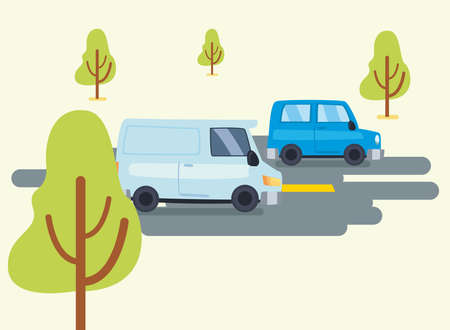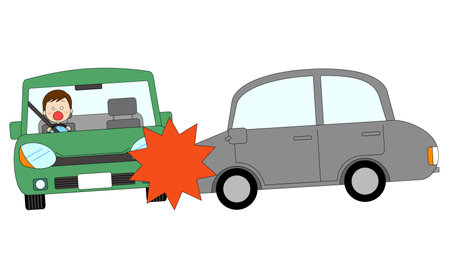1. Liability Coverage
Liability coverage is one of the most important types of auto insurance. It helps cover the costs of injuries and property damage that you cause to others in an accident. This coverage is required by law in most states, ensuring that drivers can pay for any harm they may cause while on the road.
What Does Liability Coverage Include?
Liability coverage is typically divided into two main components:
| Coverage Type | What It Covers |
|---|---|
| Bodily Injury Liability (BIL) | Helps pay for medical expenses, lost wages, and legal fees if you injure someone in an accident. |
| Property Damage Liability (PDL) | Covers repairs or replacement costs if you damage another persons vehicle or property. |
Why Is Liability Coverage Important?
Having liability insurance protects you financially if you cause an accident. Without it, you could be responsible for paying medical bills, repair costs, and even legal fees out of pocket. Most states have minimum liability coverage requirements, but you may choose to purchase higher limits for better protection.
How Much Liability Coverage Do You Need?
Each state has different minimum coverage requirements, but these limits may not be enough to fully protect you. A common recommendation is to choose higher limits to ensure that you are financially secure in case of a serious accident.
State Minimums vs. Recommended Coverage
| Coverage Type | State Minimum | Recommended |
|---|---|---|
| Bodily Injury Liability | $25,000 per person / $50,000 per accident | $100,000 per person / $300,000 per accident |
| Property Damage Liability | $10,000 per accident | $100,000 per accident |
Final Thoughts on Liability Coverage
Choosing the right amount of liability coverage can help you avoid financial hardship in the event of an accident. It’s crucial to know your states minimum requirements and consider purchasing higher limits for added peace of mind.
2. Collision Coverage
Collision coverage helps pay for repairs or replacement of your vehicle if its damaged in an accident, no matter who was at fault. This type of coverage applies whether you hit another car or an object, such as a pole, guardrail, or tree.
How Collision Coverage Works
When youre involved in a crash, your insurance company will cover the cost of repairing your vehicle after you pay your deductible. If your car is totaled, meaning the cost of repair exceeds the value of the car, the insurer will pay you the actual cash value of the vehicle, minus the deductible.
What Collision Insurance Covers
Collision coverage helps protect you in various situations. Here are some common scenarios:
| Scenario | Covered? |
|---|---|
| You collide with another vehicle | ✅ Yes |
| You hit a stationary object (e.g., tree, pole, guardrail) | ✅ Yes |
| Your car rolls over | ✅ Yes |
| Damage from a hit-and-run | ✅ Yes |
| Damage caused by weather (e.g., hail, flood) | ❌ No (Covered by Comprehensive Insurance) |
| Mechanical breakdown | ❌ No |
Is Collision Coverage Required?
Unlike liability insurance, collision coverage is not legally required in most states. However, if you lease or finance your vehicle, your lender will likely require you to carry it to protect their investment.
Collision vs. Comprehensive Coverage
People often confuse collision coverage with comprehensive coverage. While both help pay for vehicle repairs, they cover different types of damage:
| Type of Coverage | What It Covers |
|---|---|
| Collision Coverage | Damage caused by accidents with another car or object |
| Comprehensive Coverage | Damage from non-collision events like theft, vandalism, or weather-related incidents |
Should You Get Collision Coverage?
Deciding whether to add collision coverage depends on factors such as the value of your car and your financial situation. If your car is older and its value is low, the cost of adding collision insurance may not be worth it. However, if you have a newer or high-value vehicle, collision coverage can provide peace of mind.

3. Comprehensive Coverage
Comprehensive coverage is an optional type of auto insurance that helps protect your vehicle from damages caused by events other than collisions. This coverage can be especially valuable if you live in an area prone to theft, vandalism, or natural disasters.
What Does Comprehensive Coverage Include?
Unlike collision coverage, which helps pay for damages from accidents with other vehicles or objects, comprehensive coverage protects against non-collision incidents. Here are some common situations covered under comprehensive insurance:
| Covered Event | Description |
|---|---|
| Theft | If your car is stolen, comprehensive coverage can help cover the loss. |
| Vandalism | Coverage includes damages from someone intentionally damaging your vehicle, such as key scratches or broken windows. |
| Natural Disasters | Protects against events like hurricanes, tornadoes, floods, wildfires, or earthquakes that damage your car. |
| Falling Objects | Examples include damage caused by tree branches, hail, or debris. |
| Animal Collisions | Covers damages if you hit an animal, such as a deer crossing the road. |
| Fire | Protects against damage caused by vehicle fires, whether from mechanical failure or external factors. |
Do You Need Comprehensive Coverage?
While comprehensive insurance is not legally required, it can be essential for drivers who want extra protection. If you lease or finance your vehicle, your lender may require comprehensive coverage. Additionally, if your car is valuable or you live in an area prone to these risks, having comprehensive insurance could help you avoid significant out-of-pocket expenses.
How Much Does Comprehensive Coverage Cost?
The cost of comprehensive coverage depends on various factors, including the value of your vehicle, your location, and your deductible amount. A higher deductible typically results in lower monthly premiums, while a lower deductible means you pay less out of pocket if you file a claim.
Key Takeaway
Comprehensive coverage is a great addition to your auto insurance policy if you want protection against non-collision events like theft, vandalism, or natural disasters. Consider your car’s value and your financial situation to determine if this coverage is right for you.
4. Four. Personal Injury Protection (PIP) and Medical Payments Coverage
Personal Injury Protection (PIP) and Medical Payments Coverage (MedPay) help cover medical expenses for you and your passengers after an accident, regardless of fault. These coverages ensure that medical bills and other related costs are taken care of, reducing the financial burden after an unexpected crash.
What is Personal Injury Protection (PIP)?
PIP is often required in no-fault states and covers more than just medical expenses. It can also help with lost wages, rehabilitation costs, and essential services like childcare if youre unable to perform daily tasks due to injuries from an accident.
What PIP Covers
| Expense Type | Covered by PIP? |
|---|---|
| Medical Bills | ✔ Yes |
| Lost Wages | ✔ Yes |
| Rehabilitation Costs | ✔ Yes |
| Funeral Expenses | ✔ Yes |
| Damage to Your Car | ✘ No |
What is Medical Payments Coverage (MedPay)?
MedPay is a more limited form of medical coverage compared to PIP. It strictly covers medical expenses incurred by you and your passengers after an accident, regardless of fault. However, it does not cover lost wages or other non-medical expenses.
Differences Between PIP and MedPay
| Coverage Type | PIP | MedPay |
|---|---|---|
| Medical Bills | ✔ Yes | ✔ Yes |
| Lost Wages | ✔ Yes | ✘ No |
| Rehabilitation Costs | ✔ Yes | ✘ No |
| Essential Services (e.g., childcare) | ✔ Yes | ✘ No |
Do You Need PIP or MedPay?
Whether you need PIP, MedPay, or both depends on your states requirements and your personal financial situation. If you live in a no-fault state, PIP is usually mandatory. If you already have good health insurance, MedPay might be a more affordable way to cover deductibles and immediate medical expenses.
Choosing the Right Coverage
To decide the best option for you, consider factors such as your current health insurance coverage, your states laws, and whether you depend on income that could be lost due to injuries from an accident. Both PIP and MedPay can provide peace of mind and financial protection in case of unexpected medical expenses.
5. Uninsured/Underinsured Motorist Coverage
Uninsured/Underinsured Motorist (UM/UIM) coverage provides protection if youre involved in an accident with a driver who has little or no insurance. This type of coverage ensures that you’re not left paying for damages or medical expenses out of pocket when the at-fault driver can’t cover your costs.
How Does UM/UIM Coverage Work?
If you get into an accident with a driver who doesn’t have any insurance (uninsured) or doesn’t have enough insurance to cover your injuries or damages (underinsured), your UM/UIM coverage can step in to help pay for:
- Medical bills
- Lost wages due to injuries
- Pain and suffering
- Vehicle repairs (in some policies)
Types of UM/UIM Coverage
There are generally two main types of uninsured/underinsured motorist coverage:
| Type of Coverage | Description |
|---|---|
| Uninsured Motorist Bodily Injury (UMBI) | Covers medical expenses, lost wages, and pain and suffering if youre injured by a driver without insurance. |
| Underinsured Motorist Bodily Injury (UIMBI) | Helps cover costs when an at-fault driver’s insurance is insufficient to pay for your medical bills and damages. |
| Uninsured Motorist Property Damage (UMPD) | Pays for vehicle repairs if an uninsured driver damages your car, but availability varies by state. |
Is UM/UIM Coverage Required?
While some states require UM/UIM coverage, others make it optional. Even if its not mandatory in your state, it can be a valuable safeguard against unexpected expenses.
States That Require UM/UIM Coverage
A number of states mandate uninsured and/or underinsured motorist coverage. The specific requirements vary, so its a good idea to check your state’s laws to ensure compliance.
Why You Should Consider UM/UIM Coverage
Even though liability insurance is required in most states, not every driver follows the law, and some may not carry enough coverage to fully compensate you after an accident. UM/UIM coverage provides peace of mind by ensuring you have financial protection in these situations.


